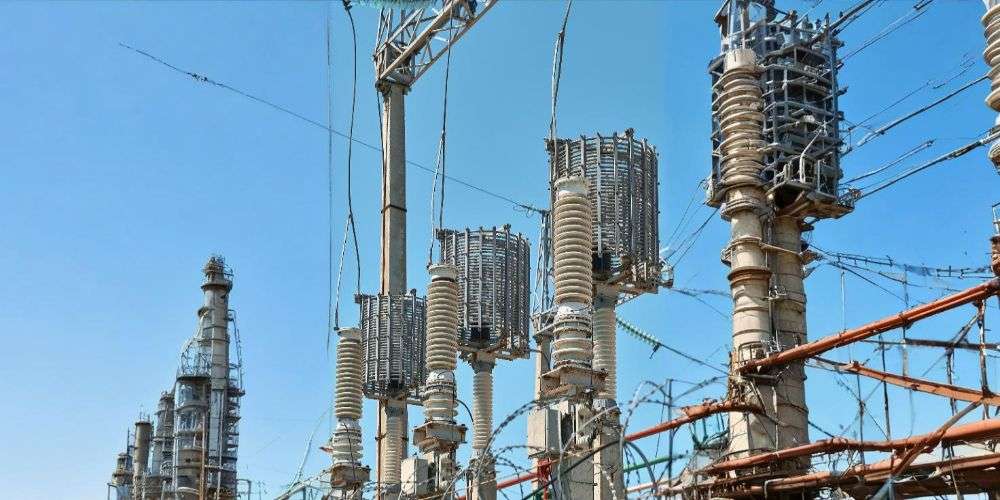The privatization of the Electricity Company of Ghana (ECG) has been a topic of increasing discussion, especially after the establishment of a committee to oversee the process by the newly formed government.
While the committee’s objective of involving the private sector in the revenue mobilization aspects of ECG is commendable, the Africa Sustainable Energy Centre (ASEC) believes that the country’s energy sector requires more than just private sector participation in revenue collection.
In a comprehensive analysis, ASEC outlined the critical considerations necessary to ensure ECG’s privatization achieves operational excellence and long-term sustainability.
According to ASEC, simply involving the private sector to collect revenue from customers is not enough to address the deep-rooted challenges in Ghana’s electricity distribution system.
The current state of ECG requires substantial private sector capital and expertise to improve overall operational efficiency before the privatization process can be fully realized.
ASEC argued that one of the most important aspects of the privatization process is designing a well-estimated concession period that ensures both private investors and the state benefit.
This concession period should carefully consider variables such as capital recovery, revenue improvement milestones, debt recovery projections, and regulatory adjustments.
“The committee needs to conduct a thorough analysis of the capital recovery timeline for private investors to recoup their investments in smart metering infrastructure, IT systems, and network upgrades.”
Africa Sustainable Energy Centre (ASEC)
This timeline will also include the period needed to reduce technical and commercial losses in the sector, which remains a persistent issue for ECG.
In addition, ASEC stressed the importance of setting clear benchmarks for revenue improvement, including enhanced customer payment compliance and arrears recovery.
This will allow the committee to define key milestones that will guide the sector toward greater financial sustainability.
ASEC also emphasized that the committee should develop realistic timelines for debt recovery, particularly in relation to legacy debts owed to ECG.
“Debt recovery projections must be realistic and account for the significant amounts owed by customers.
“Without proper debt management, ECG will not be able to achieve the operational efficiency required for a successful transition.”
Africa Sustainable Energy Centre (ASEC)
Furthermore, the committee must consider gradual tariff adjustments that reflect the cost of service while maintaining affordability for vulnerable consumers.
ASEC also recommended evaluating the time needed for the development and implementation of necessary legal and policy frameworks that will support the privatization process.
Stakeholder Engagement for ECG Privatization

A key part of ASEC’s recommendations includes establishing a clear regulatory roadmap for the privatization process. This roadmap must ensure transparency and fairness in the privatization process while protecting the interests of consumers and stakeholders.
ASEC urges the committee clearly outline which commercial activities will be privatized, including efforts to reduce aggregate technical and commercial (ATC) losses.
Competitive bidding for private sector participation is essential, with the criteria for selection focusing on technical expertise, financial capacity, and proven experience.
Public participation should be encouraged throughout the procurement process to ensure broad support for the privatization strategy.
“Empower Public Utilities Regulatory Commission (PURC) to oversee tariff adjustments and protect consumer interests during and after privatization.
“Implement adaptive regulatory frameworks that allow for periodic reviews based on market conditions, technology adoption, and performance outcomes.”
Africa Sustainable Energy Centre (ASEC)
ASEC suggested the committee should define the roles of the Ministry of Energy, the Energy Commission, and the ECG board in supervising the private sector’s involvement in the ECG operations.
One key challenge identified by ASEC is the importance of involving all stakeholders, particularly the public and employees of ECG. “A robust stakeholder engagement strategy is necessary to ensure public buy-in and minimize resistance,” said ASEC.
The committee should establish clear communication channels to provide updates on the privatization process and address concerns from various stakeholders, especially those from lower-income and rural areas who might be most affected by changes in billing and tariffs.
Need for Performance-Based Concession Agreements

ASEC’s proposal emphasized the need for performance-based concession agreements (PBCAs), which would tie financial rewards to measurable performance indicators for the private sector.
This approach will ensure that private operators focus on improving operational efficiency while maintaining long-term ownership of critical national assets.
“Designing PBCAs that tie performance directly to operational improvements is essential for ensuring that Ghana benefits from this privatization.”
Africa Sustainable Energy Centre (ASEC)
These agreements should include performance metrics that focus on revenue improvement, customer service, and operational efficiency. They should also set clear intervals, such as every two years, to assess performance and make necessary adjustments.
To further encourage outstanding performance, ASEC suggested that private sector operators should have the opportunity for performance-based extensions, rewarding them with additional years if their operations exceed expectations.
In its analysis, ASEC also proposed a decentralized approach to the privatization of ECG’s commercial operations. By breaking the ECG into regional clusters (Northern, Southern, and Middle Belt), ASEC believes Ghana can address performance-driven accountability at a manageable scale.
ASEC explained, “Regional operators can better handle local challenges such as electricity theft and cultural barriers to payment.” This regional approach would allow for tailored solutions to address specific regional issues and improve customer service in underserved areas.
Moreover, ASEC highlighted that this regionalization would allow for competitive benchmarking across different operators, ensuring continuous improvement and fostering innovation.
Poorly performing regional operators could be replaced without disrupting the national grid, mitigating risks associated with underperformance in a single national operator.
ASEC emphasized that a well-planned privatization of ECG’s commercial operations could be a game-changer for Ghana’s electricity sector.
However, this requires a holistic approach that goes beyond revenue collection to include capital investment, regulatory reforms, and performance-based agreements.
By considering the recommendations provided, Ghana can ensure a sustainable and efficient power sector that aligns with the country’s broader economic development goals.
The committee overseeing this process must take a comprehensive and strategic approach to guarantee that the benefits of privatization are maximized for both investors and the Ghanaian public.
Ultimately, the success of ECG’s privatization will be determined by the government’s commitment to transparency, stakeholder collaboration, and strong regulatory oversight.























